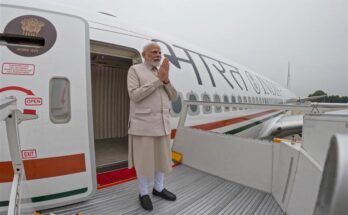
Team News Riveting
New Delhi, February 28
In a major setback to Delhi’s Deputy Chief Minister Manish Sisodia, the Supreme Court on Tuesday dismissed his plea seeking protection against five-day CBI remand.
A Bench led by Chief Justice of India D Y Chandrachud asked Sisodia to take up the matter in Delhi High Court. The Delhi Deputy Chief Minister was arrested by the CBI on Sunday after eight hours of questioning in connection with the excise policy case, including his alleged links with Dinesh Arora and other accused persons mentioned in the FIR.
A Delhi court sent the senior AAP leader to five-day CBI custody till March 4 on Monday.
The News Riveting makes its reader know what exactly the case is all about that landed Sisodia in Jail. The grounds of his arrest were being prepared from July last year when Delhi’s Chief Secretary Naresh Kumar had submitted a report to Lieutenant Governor V K Saxena, accusing Sisodia of providing undue benefits to liquor vend licensees in lieu of ‘commissions’.
The inquiry report by the Vigilance Department on the excise policy case deals at length with the arbitrary and unilateral decisions taken by Manish Sisodia and the excise department officials that resulted in huge financial loss to the exchequer, according to sources. The findings of the inquiry report with regard to the levy of import pass fee and profit margin in case of foreign liquor, reduction in the number of dry days and illegal extension of the excise policy also expose that the policy had helped earn huge revenues, they added.
Interestingly, the Delhi Cabinet headed by Arvind Kejriwal withdrew the excise policy 2021-22 in July last year after the policy landed into controversy.
The CBI FIR in the case said that Sisodia, then Excise Commissioner Arava Gopi Krishna, and two other senior excise department officials were “instrumental in recommending and taking decisions pertaining to the excise policy for the year 2021-22 without the approval of the competent authority with an intention to extend undue favours to the licensees post tender”.
“However, the observations of the vigilance report with regard to the irregularities tell a different story. It was Sisodia who actually made room for windfall gains to the licensees and caused revenue loss to the government,” said a statement from the L-G Secretariat.
As per the report, the huge revenue loss caused to the government was because of the ‘levy of import pass fees on beer and profit margin per unit for the manufacturers in case of foreign liquor”.
According to The Tribune report quoting sources, “The officials of the excise department neither took approval of the Council of Ministers, nor the opinion of the L-G before issuing the order dated November 8, 2021 for revising the formula of calculation of rates of foreign liquor and removal of levying of import pass fee at Rs 50 per case on beer. It was observed that by undertaking such reduction in wholesale prices, the input cost of beer and foreign liquor to the retail licensees (L7Z) was reduced.
The report added that refund of Rs 30 crore EMD in case of Airport Zone The officials of the excise department were of the view that if EMD is not forfeited, bidders may quote unrealistic annual reserve licence fee, creating obstruction and derailing of the tender process. These officials sought directions from the Group of Ministers regarding forfeiture/refund of EMD in case the H1 bidder fails to obtain NOC from the Airport Authority of India (AAI) within 30 days and sent the file to the finance department. However, Sisodia inter alia decided that the EMD should be refunded to the H1 bidder who fails to obtain NOC from AAI.
The third point is the waiver of Rs 144.36 crore licence fee for January 2022 on the pretext of COVID restrictions as relief to the liquor cartel. The licensees under the excise policy had approached the Delhi government for licence fee waiver for the Covid restriction period.
When they received no response from the government, the licensees approached the Delhi High Court which directed the licensees to file a fresh representation and told the excise department to dispose the same within seven days. The minister in-charge, Sisodia, on February 1, 2022 directed to provide pro-rata licence fee relief to each licensee for the closed vends during the period from December 28, 2021 to January 27, 2022.
The number of dry days was also reduced from 21 in a calendar year to just three days in 2022, without taking the approval of the Council of Ministers or taking the L-G’s opinion in this matter, the report said.
Regarding the extension of excise policy, the report also underlined that no such exercise was undertaken by the officials of the department before extending the period of licence without any increase in the tendered licence fee. Therefore, such extension without any increase in tendered licence fee would prima facie lead to undue benefits to such licensee.



